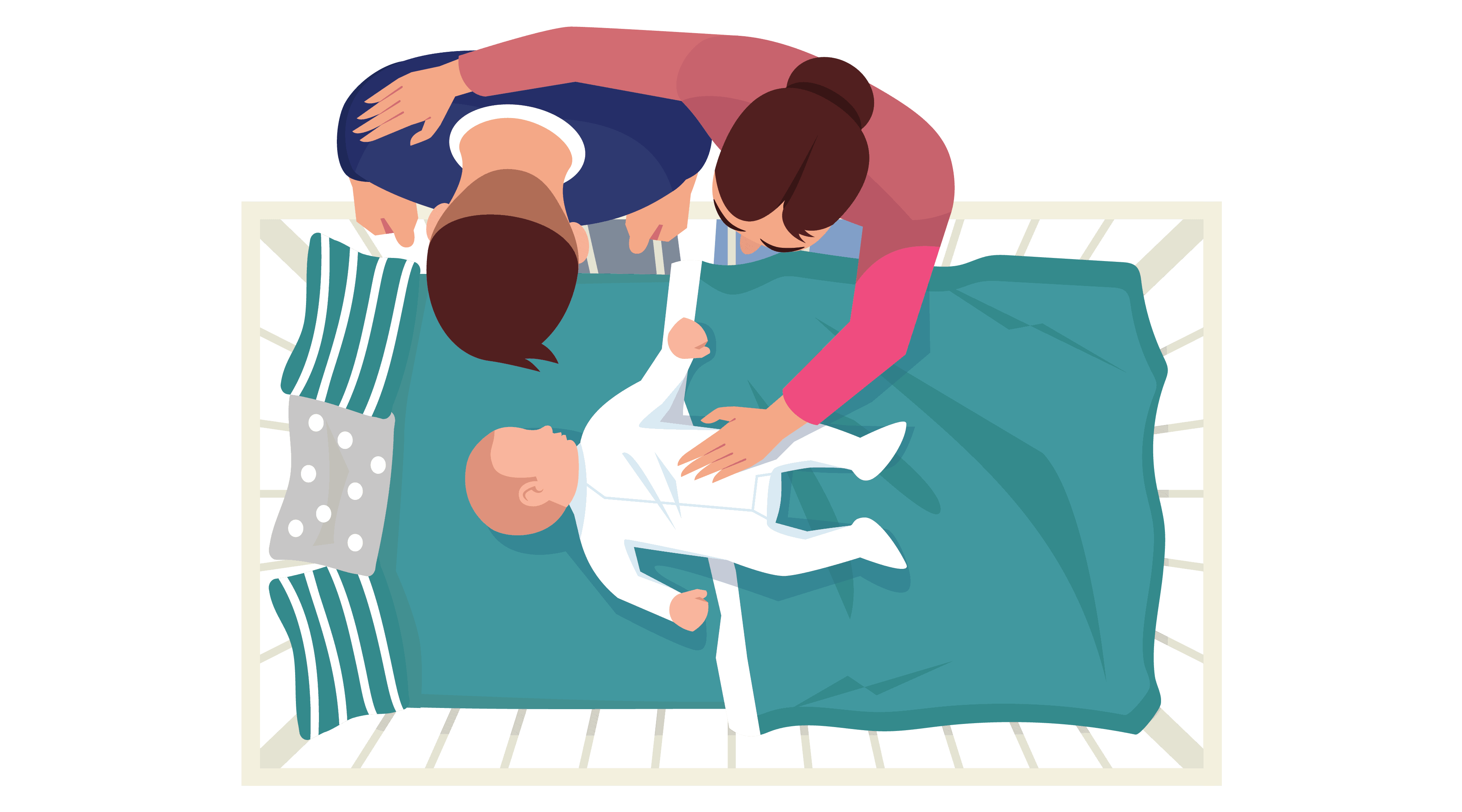Is it too late to start baby or toddler sleep training?
It’s never too late to make changes to your child’s sleep hygiene. This can include their sleep environment, timing, routine, response to wakings, etc. It can sometimes feel like we’ve “missed the boat” on sleep opportunities or have “created” bad habits. Try not to be too hard on yourself. After all, chances are that your current sleeping arrangement came from necessity. The good news is that tonight is a new night.

Understanding Baby and Toddler Sleep Development
As babies grow beyond 4 months, they undergo significant changes in their sleep architecture. They are beginning their transition to sleep more like an adult. While night wakings are normal (to feed, have a diaper change, etc.), if your baby is waking 3+ times every night and/or resisting going to bed, sleep training could help.
While some children naturally fall into a consistent sleep routine, others may struggle with self-soothing and nighttime wakings. If you see disrupted sleep or sleep challenges for 1-2 weeks and your baby is over 4 months, consider sleep training.
Every age group carries some unique challenges with sleep training: Infants learning to roll to their stomach, older babies standing in the crib for lengthy periods, or toddlers escaping the crib.
Infants, with their rapidly developing brains and growing independence, respond well to gentle sleep training methods. Establishing a consistent bedtime routine and gradually encouraging self-soothing can lay the foundation for healthier sleep patterns.
As children transition into the toddler stage, sleep training takes on a new dimension. Toddlers, with their budding independence and emerging personalities, need control and predictability in their bedtime routine. Look for a balance between fostering independence and maintaining a structured sleep routine. Consistent sleep location, routine and timing are a great place to start. Allow your toddler to control things like what stories to read or what pajamas to wear.
The Window of Opportunity For Sleep Training
No matter your child’s age, look for a stretch of time (10-14 days) where you can be home for all evenings and have a regular daily routine. Having some naps on-the-go throughout sleep training is no problem.
It’s essential to adapt methods to suit the child’s developmental stage. It’s also helpful to adjust your expectations to be inline with their current developmental stage. Whatever strategy you choose – consistency is key, and parents should establish a calming bedtime routine to signal to the child that it’s time to wind down. This may include activities such as reading a book, rocking, or singing a lullaby.
For those navigating the complex world of sleep training, especially with multiple children, enlisting the help of a sleep consultant can be the compass that steers you toward a more restful and harmonious family life.
It’s never too late to embark on the journey of sleep training. With patience, consistency, and a tailored approach, parents can help their child develop healthy sleep habits that benefit both the child and the entire family. For parents unsure about where to begin or concerned about potential challenges, consulting with your caregiver or sleep consultant can provide valuable guidance. Professionals can offer personalized advice based on the child’s unique needs and developmental stage.
Every night is going by anyway, you may as well make some changes. We are here to help.

